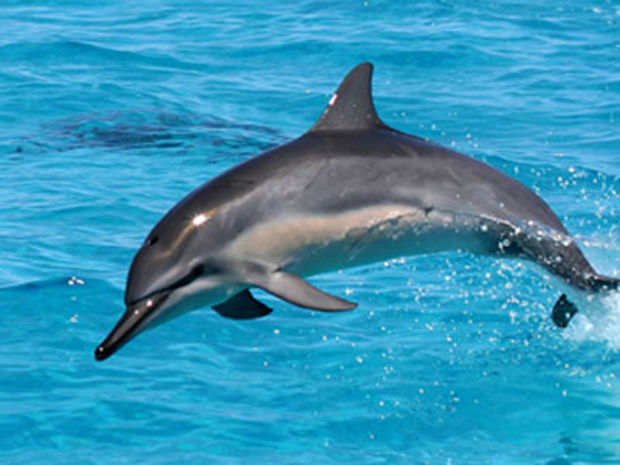LIHUE — The state Department of Land and Natural Resources and NOAA’s National Marine Fisheries Service are advising people to be “dolphin smart.” To avoid potential harassment of spinner dolphins, ocean and beach goers should keep the recommended distance of
LIHUE — The state Department of Land and Natural Resources and NOAA’s National Marine Fisheries Service are advising people to be “dolphin smart.”
To avoid potential harassment of spinner dolphins, ocean and beach goers should keep the recommended distance of 150 feet (50 yards) when observing dolphins in the wild.
Hawaiian spinner dolphins move near shore into bays and coves during the day to rest, care for their young, and avoid predators. During this time it is important not to disturb them as these activities are critical to their survival. At night they move offshore to feed.
“It is tempting to approach and interact with these animals; however, research has shown that these interactions can interfere with their natural behavior and could have population-wide effects,” said William J. Aila, Jr., DLNR chairperson.
NOAA Fisheries Regional Administrator Michael Tosatto said close interactions with the dolphins are not only potentially harmful to them, but can lead to harassment, which is illegal.
“By following the responsible viewing guidelines, we can limit the impacts our activities may have on the animals,” he said.
Spinner dolphins are named for their unique behavior of leaping out of the water and spinning in the air. These social animals travel in groups of between 10 and 100 or more and are believed to live over 20 years.
They are protected under the Marine Mammal Protection Act.
DLNR and NOAA Fisheries encourage all ocean users to follow Dolphin SMART guidelines, which are: Stay at least 50 yards from dolphins; Move away cautiously if dolphins show signs of disturbance; Always put your engine in neutral when dolphins are near; Refrain from feeding, touching or swimming with wild dolphins; Teach others to be Dolphin SMART.
Violations of the MMPA should be reported to NOAA Fisheries’ Enforcement Hotline at 1-800-853-1964.

Subscribe today for unlimited access.
Already a subscriber?
Login
Not ready to subscribe?
Register for limited access.
If you have a print subscription but require digital access,
activate your account.




